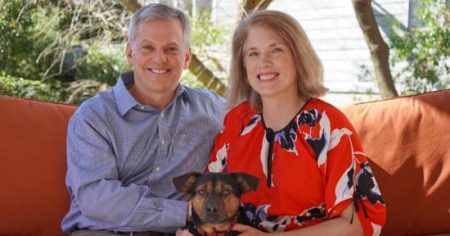Restoring YMI’s History
.jpg) |
| Darin Waters researching the vast archival records and documents of the Biltmore Estate. (Photo by Renato Rotolo) by special permission to the Urban News. |
Darin J. Waters may well be the writer and researcher to put the YMI on the cultural landscape.
His familial roots go far into Asheville and the surrounding area’s history: his great-grandmother, Emma Hall Waters, was born in Asheville, his great-grandfather, Lewis Waters was from Henderson County, and. His great-great- grandfather, George Waters, lived in Henderson County in 1850.
“I wanted to study Asheville and Buncombe County because I grew up here,” Waters said.
Furthermore, he has a firm belief in the importance of local figures. And so, after several years of successful professional life, he completed his master’s in History at NC State and began work on his PhD at UNC Chapel Hill.
Waters’
current doctoral research is an important contribution to African
American History. His distinguished committee and chairmen, which
includes the famous 92-year-old African-American historian, John Hope
Franklin, inspired Waters to work to bring broader understanding of WNC
African-American history.
Remembering All People –
the Importance of Local Stories
Waters has an
impressive command of local history. “Among historians there is a wrong
assumption about the Appalachian region: that there were not many
African Americans in the mountains here,” Waters related. “The premier
researcher of Appalachian studies, John C. Campbell, wrote a book in
which he stated that the number of African Americans was so small as to
be ‘of no consequence to the region.’ Now that claim is being
challenged.”
Waters hopes to
bring yet more awareness with his research on the YMI. Looking into the
Biltmore Estate’s archives has been an important first step. “What we
found out was that most of what is known about YMI’s founding is not
true!” Waters exclaimed. “Dr. William Powell, an expert on NC history,
had said that Vanderbilt created the YMI for the African-American
workers on his estate. In reality, the idea of the YMI originated
within the African- American community, and they approached Vanderbilt.
Edward Stephens was the principal player in getting Vanderbilt to put
the money into this project. Stephens was reportedly born in the West
Indies, studied in England, and spoke 5 languages.” Stephens Lee High
School was named for him.
Waters believes
that it is important to remember where we came from. “We stand on the
shoulders of great people. The YMI depended on the people who founded
it. It took a lot of courage to approach Vanderbilt. I have an interest
in promoting the study of local history. For example, John Lorenzo
Love, second secretary of the YMI, was born and raised in Asheville,
attended Oberlin College, later got a law degree, and put his heart and
soul into the YMI. He and Edward Stephens are some of our local heroes,
for whom I have a lot of admiration. It would have been inspiring for
me as a kid to know about these people.”
The YMI Stands Out
For the first 13
years, the Estate provided oversight, but all of the board members were
African Americans and they were involved in selection of staff.
Vanderbilt provided the initial loan and the retail shops in the
building generated income to pay it back. The YMI was sold outright to
the African American community in 1906 for $10,000.
“What’s unique
is that the Estate wanted to give Asheville’s African American
community control,” Waters mused. “Had it been a YMCA, it would not
have been locally run. They were able to do things a YMCA couldn’t have
done, such as host retail businesses, Masonic Lodge meetings,
African-American labor union meetings, and the first African American
kindergarten, funded by George Vanderbilt. There was also a ladies’
auxiliary, even though this was the Young Men’s Institute.”
“I believe the
story of YMI is an inspirational one, especially given this belief that
there weren’t enough African Americans here to be of any consequence,”
Waters continued. “In this area with a smaller African American
population, the fact that there was an interest in helping propel the
community forward politically, economically, and socially will
challenge what most historians believe about this region of NC. There
are the makings of a paradigm shift for that field in history!”
National Significance
“This is a
national story. I think anyone who learns about it will want to come
here and see this building. It’s amazing that it is still standing. The
book I’m writing will bring national attention to the YMI.”
Waters
concluded, “I’ve been marveling that this happened here. People from
Fayetteville or other areas of Eastern NC still think that ‘there are
no African-American people in Asheville.’ I want to blow that idea out
of the water and let folks know that the African-American community
here is doing remarkable things.”
Waters will finish his dissertation this year and the
book is expected to be out in 2008. National forums, conferences,
symposiums, and lectures will be organized around the publication of
the book.
Visit www.Darinwaters.com to read about his findings.







